Hundreds of death row inmates sit in California prisons. Why must they wait?
Published in News & Features
Charles E. Case was sentenced to death by a Sacramento County jury nearly 30 years ago and immediately became eligible for an attorney skilled at state-level habeas corpus appeals, a key part of the process to determine whether capital punishment should be carried out.
Now 84 years old, he still hasn’t been assigned one.
Even older is the case of Christopher Sattiewhite, convicted in connection with the 1992 rape and murder of a woman in Ventura County. He also has never been assigned a habeas lawyer, despite going so far as to submit hand-written letters to the federal courts begging to be allowed to skip mandated state-level appeals because an attorney was never assigned to him.
In Sacramento, a mistrial was declared Nov. 15 in the case deciding the fate of Adel Ramos, who pleaded guilty to the 2019 ambush killing of Sacramento Police rookie Tara O’Sullivan. The prosecution has until Dec. 20 to declare whether it will embark on another proceeding to decide whether Ramos should be put to death. If sentenced, Ramos, too, would be eligible for a habeas lawyer, and though already 51 , could wait decades for one to be appointed.
“It’s insane,” said Michael Hersek, executive director of the Habeas Corpus Resource Center (HCRC), the state agency tasked with representing inmates in these appeals. “These are rights that people have.”
The difficulty in appointing lawyers and the decades-long delays that result are emblematic of problems in California’s system for implementing the death penalty. The state hasn’t executed anyone since 2006, yet spends $72 million a year pursuing death penalty convictions and funding the subsequent appeals. More than 600 people are sentenced to die in California, more than any other state and so many that the crowded death row at San Quentin was dismantled and the inmates moved to other high security prisons to handle their care better over decades of appeals and waiting.
California Gov. Gavin Newsom imposed a moratorium on the death penalty in 2019, but a new governor could reverse that, bringing back executions.
It’s not that these inmates are sympathetic characters: Case had done time for a series of rapes and was released just two years before he committed the murders that landed him a death sentence. But all people sentenced to death have the right to be represented by counsel and appeal their cases. Their fates have taken on increasing urgency in recent years, with studies showing that about 4% of people convicted of a crime turn out to be innocent, while still more may have been sentenced to harsher punishments because of race-based discrimination.
Of the 592 men and 20 women condemned to death in California, more than 360 lack an attorney to handle mandated state level habeas appeals, data show. About 125 of them have been waiting for more than 20 years.
A big part of the problem is a lack of lawyers. The Habeas Corpus Resource Center is funded for only 33 attorneys, Hersek and the California Judicial Council said. Outside the agency, only three other lawyers in the state have become qualified to handle these state-level habeas corpus appeals, data show. And payment issues make getting them to take any cases difficult, Hersek said.
The resulting backlog is a drain on the state’s legal system that is limiting the judiciary’s ability to function and has left the state at an impasse, said Elisabeth Semel, professor and co-director of the Death Penalty Clinic at Berkeley Law. Elected prosecutors, fearing the ire of voters angry about a disturbing case, seek capital punishment, as it remains on the books. And after that happens, the California and U.S. constitutions require care and deliberation to make sure innocent people are not executed.
“Californians kind of want the death penalty in their back pocket so when that horrible, horrible crime happens the option will be there,” she said.
Without lawyers, cases put on hold
An inmate is entitled to two types of appeals once sentenced to death. Most have been able to access representation for the first set of appeals, known as direct appeals. These cases are handled by the state public defender’s office to make sure that higher courts review the trial record for legal errors.
These state lawyers once also handled the second type of appeals, known as habeas petitions, which look specifically for mitigating circumstances and new evidence that might make a death penalty sentence inappropriate. But that stopped in the late 1990s as part of an unsuccessful effort to win speedier trials at the federal level. A 1978 ballot initiative reinstating the death penalty after it had been abolished in California required the state to provide lawyers for these state-level appeals.
The passage of Prop. 66 in 2016 made the delays even longer. The measure mandated that all state habeas cases begin at the level of a trial court, rather than the state supreme court, as had been customary. But the measure did not provide a mechanism for paying for the lawyers needed to conduct the cases in the lower courts.
As a result, more than 40 inmates affected by the ballot measure had existing cases put on hold because judges had no way to appoint lawyers for them, according to the California Appellate Project, which trains lawyers to handle the direct appeals and file placeholder habeas petitions to keep prisoners’ rights alive.
A case in point is James Robinson, who was sentenced to death in 1994 for the murder of two teens at a Subway sandwich shop in Los Angeles. Robinson, now a transgender inmate named June Oceans, had been represented under the pre-Prop. 66 rules in the California Supreme Court and at the trial court level. But when he reached the California Second Appellate District for his state appeal, the court put an indefinite stay on his case, because it had no mechanism for appointing him a lawyer.
“The matter of compensation of counsel has not yet been resolved by the state legislature or the governor,” the court wrote in a 2020 letter addressed to Robinson, the docket shows. “The stay of the appeal in your case continues to be in effect, as is true of all other appeals from decisions denying habeas petitions in capital cases.”
Merrill Balassone, a spokesman for the California Judicial Council, which runs the state courts, said that the state courts of appeal are not authorized to pay for capital cases, which carry particular rules and pay a higher death penalty rate to lawyers.
The situation has angered supporters of capital punishment as well as opponents.
“If a person has a right to appointed counsel by law, which these cases do, it is grossly irresponsible to not fund them,” said Kent Scheidegger, an attorney who runs a conservative legal foundation aimed at speeding up punishment in criminal cases and helped to write Prop 66. He expressed skepticism that the courts really needed a new funding stream to fund attorneys under the proposition.
California’s ambivalent relationship with capital punishment
California has a complicated relationship with the death penalty. Problems with the lethal injection protocol led to a halt in executions after the 2006 execution of Clarence Ray Allen, who orchestrated several murders in Fresno the late 1970s and early 1980s.
Yet the death penalty, which in California can only be fully repealed by the voters, remained on the books, and prosecutors sought and won hundreds of new convictions.
Politicians in the increasingly liberal state were hesitant to push to resume executions. Yet they also were wary of formally ending the death penalty, aware that a majority of voters had repeatedly turned down ballot measures that would have ended it.
Newsom imposed a moratorium on the death penalty in 2019. Over the past five years his administration has moved inhabitants of California’s Death Row, the most crowded in the country, to other high security facilities, including California State Prison, Sacramento, near Folsom, and Pelican Bay State Prison.
The death chamber at San Quentin State Prison was dismantled, and the facility was renamed the San Quentin Rehabilitation Center.
But voters turned down two separate measures to abolish the death penalty, and instead backed Prop. 66, which was meant to speed it up. The measure was supposed to keep all state appeals to a five-year time frame, but courts ruled that such a hard and fast rule could not be enforced.
Asked for a comment from Newsom on the delays, spokeswoman Tara Gallegos said it was the prosecutor’s responsibility, not the state’s, to decide whether to seek the death penalty. She said that the judiciary was responsible for implementing the new requirements under Prop. 66.
“The governor has long made clear his concerns about the risk of the execution of innocent people, which is why he implemented his March 2019 moratorium,” she said.
There is also the question of how to go about executing the roughly 40 inmates who have exhausted all of their appeals — or the more than 600 total condemned inmates — should capital punishment start up again, said Semel of UC Berkeley. Assuming a rate of 10 executions per month, it would take five years to put all of the condemned inmates to death — a “conveyor belt” of killing that Californians might not be willing to stomach, she said.
While many prosecutors in the state continue to seek the death penalty, saying it is the only way to offer justice to the families of murder victims, Santa Clara County District Attorney Jeff Rosen has begun to unwind capital convictions overseen by his office — some of them decades old. Rosen in April went to court to ask that death sentences for 15 Santa Clara inmates be changed to life in prison without parole, saying that California’s current system was “fruitless and unfair,” leaving victims and perpetrators in limbo for decades.
To a degree, the current stasis suits some on both sides of the argument over the death penalty, said Heather Williams, Federal Public Defender for the Eastern District of California. Liberal California can avoid actually executing anyone if the process drags on for so long that they die of old age in prison, yet politicians don’t experience the blowback they have consistently gotten for trying to abolish the punishment altogether.
But that leaves the innocent and wrongly convicted languishing in prison, she said.
Innocent or not, said Hersek of the Habeas Corpus Resource Center, the delays deprive all prisoners of their rights under California law.
“They’re under sentence of death,” Hersek said. “These are serious cases.”
____
©2024 The Sacramento Bee. Visit at sacbee.com. Distributed by Tribune Content Agency, LLC.
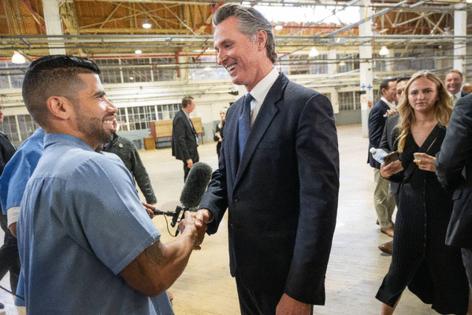
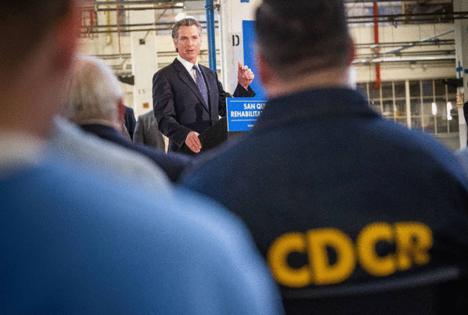
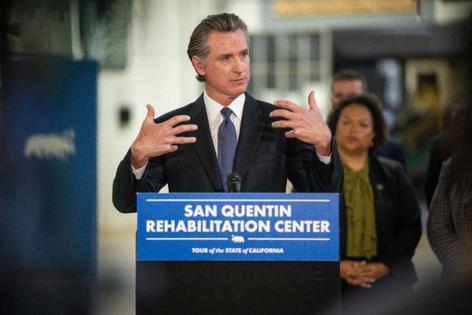
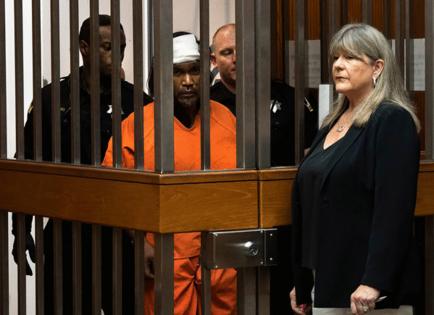
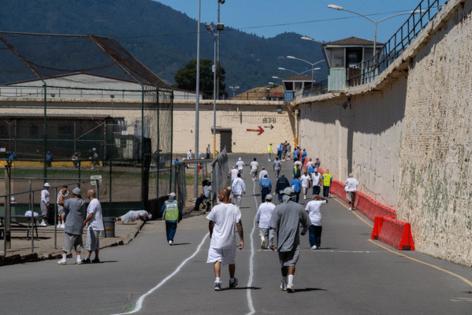











Comments